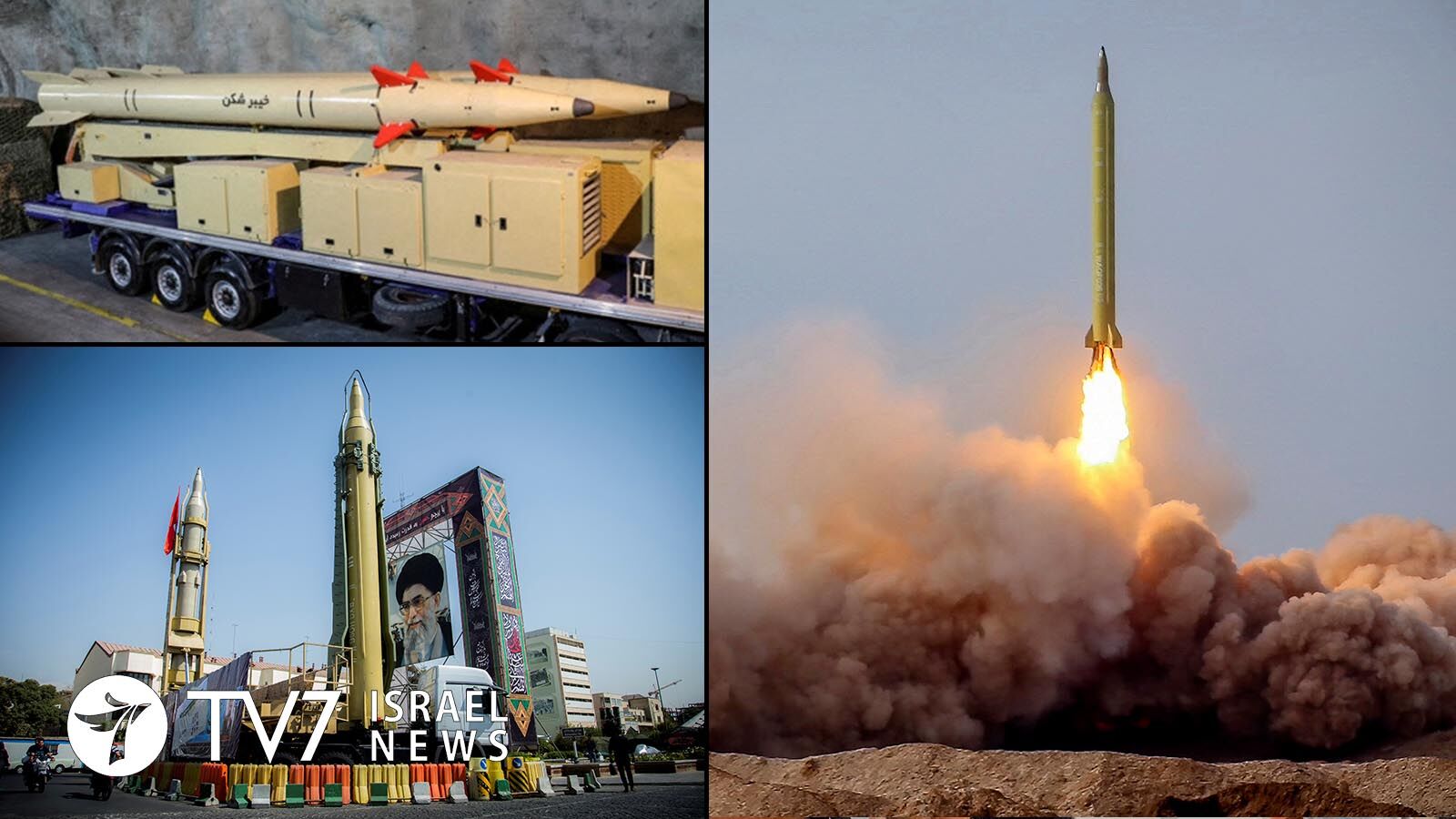The Islamic Republic rolled out a new domestically-produced missile with a 1,450 kilometer range yesterday – just one day after resuming talks with world powers to revive the 2015 Joint Comprehensive Plan of Acton (JCPOA) nuclear deal.
By Erin Viner
“Iran will continue advancing its ballistic missile program,” declared the country’s Armed Forces Chief of Staff Major General Mohammad Bagheri during a a ceremony at an Islamic Revolutionary Guard Corps (IRGC) base where the new “Kheibar Shekan” missile was displayed, reported the semi-official Tasnim news agency.
“We will continue on the path of growth, development and excellence for our missile power, both in terms of quantity and quality,” he vowed.
Israel and United States bases in the region are within reach of ballistic missiles Iran claims to possess with ranges of up to 2,000 km (1,200 miles).
The very name of the newest surface-to-surface missile, which means “Kheibar Buster” in English) carries an implicit threat to the Jewish State.
Kheibar was an ancient Jewish oasis in the Hijaz region of the Arabian Peninsula that was conquered by Muslim warriors in the 7th century. Led by the founder of Islam Mohammad, Jews were forced to flee the area in today’s Kingdom of Saudi Arabia as a consequence of the Battle of Kheibar in 628 AD.
“This long-range missile is domestically manufactured by the Revolutionary Guards … It has high accuracy and is propelled by solid fuel and is capable of penetrating missile shields,” reported Iranian state media.
“The enemies of the revolution and the Islamic Republic do not understand anything other than the language of power and force. If they even slightly feel that in attacking the Islamic revolution, the Islamic order, and our country’s resources, they will gain more than they will lose, they will not consider morals or humanity or human rights or press coverage in their attack and nor will they fear any other power,” proclaimed Gen. Bagheri at the unveiling.
IRGC Aerospace Commander Brigadier General Amir Ali Hajizadeh announced that the new “Kheibar Shekan” is a third-generation missile which can both use solid fuels and can be operated easily and its functionality has increased our missile strength significantly.”
Hajizadeh has been personally targeted by US counter-terrorism sanctions since 2019, when he and 7 other senior IRGC commanders of Navy (IRGCN), Aerospace, and Ground Forces designated as “responsible for effectuating the Iranian regime’s destructive influence in the Middle East,” according to a US Treasury statement. “IRGC commanders are responsible for the Iranian regime’s provocative attacks orchestrated in internationally recognized waters and airspace, as well as Iran’s malign activities in Syria,” said then-Treasury Secretary Steven Mnuchin, undercoring that the “Treasury will continue to aggressively target the senior leaders and the financial apparatus sustaining this malign activity. This action is a warning to officials at all levels of the IRGC and the rest of the Iranian regime that we will continue to sanction those who export violence, sabotage, and terrorism.”
Iran, which routinely lays claim to possessing technological advances in its armed forces, has built one of the biggest missile arsenals in the Middle East.
The IRGC previously stated that it has built a series of underground “missile cities” along the Persian Gulf coastline.
Tehran has long rejected Western demands to halt development of ballistic missiles, which are capable of carrying nuclear payloads, in blatant defiance of United Nations Security Council Resolution 2231.
Arch-regional rival Sunni Muslim Saudi Arabia has repeatedly demanded that major world powers to address Gulf Arab concerns over Shi’ite- Iran’s missile arsenal.
Israel has long threatened military action against Iran if the talks in Vienna fail to curb Tehran’s nuclear work.
Indirect talks between Tehran and Washington to revive the JCPOA have made little apparent progress despite eight rounds since April.
“Voices from the U.S. government show there is no coherence in that country to make political decisions in the direction of advancing the Vienna talks,” Iran’s Supreme National Security Council Secretary Ali Shamkhani wrote in a Tweet yesterday.
